“Can you teach courage?”
“No. You can’t teach it. You can only show people how good it feels to be free.”
Natan Sharansky
Freedom is not the easiest concept to grasp. From the very important things in life, it’s the most invisible one. Here’s why:
- If you have freedom and have always had it, you can’t imagine your life without it; it becomes invisible, a given…
- But if you don’t have freedom and never had it, how do you know what you’re missing?
This is why if your life is static and driven by inertia, your drive for freedom suffers. You are not reminded that you have nearly infinite different paths of future choices. And some lead to freedom you can only dream about. Because when inertia and sheep mode prevail, you forget how to dream…
We can define Freedom in the simplest possible terms: How many meaningfully different paths can I take?
Many different paths = High freedom
Few different paths = Low freedom
The constraints on freedom are two kinds:
- Game of Self limitations (our own abilities, fears, and barriers)
- Game of Life limitations (our health, family and relationships, moral responsibilities to others, and financial freedom)
In I Grow Younger, removing the toxic ones among those limitations is a central theme, eg, facing and reducing our fears and fighting harmful cultural myths, as well as achieving creative and financial freedom. A deep exploration of the interconnected wiring of life and the relationship of all its components in Time led us to an interesting concept about how we can measure success.
As you know, we favor a “feeling-over-thinking” intuitive approach to life. But intuition still comes from basic ideas and data points. And in order to develop this massive skill, we need to choose the base and have something quantifiable we can measure in real time, otherwise, it’s easy to get completely lost in the abstract, jumbled relationships of life’s building blocks. And we chose for our measuring stick… freedom.
A central concept of I Grow Younger is to use freedom as the metric for success in self improvement.
But why freedom and which freedom and how do we measure it?
Why? Honestly, because all other attempts turn out to be instant epic fails!
Don’t believe me? Here, let’s try to find another metric for self-growth:
- Health (including mental health)? Relatively measurable, but you can be healthy and unhappy and unwise, doesn’t really work.
- Happiness? It’s very subjective to measure and has a large genetic component. It also kind of comes from within; it’s not directly manageable.
- Wisdom/Intuition? Subjective to define and measure between different people… Also, it comes slowly, and I don’t want readers to think they need years before they can improve – the truth is, they don’t. Every life can change in a week if many right things happen in this week.
- Developing Self-Love? Nice try, but… many people cannot yet grasp the concept of Self-Love, you cannot measure something you don’t know you can have. We want something we all know about.
- Developing Unconditional Love? Depends too much on the people you meet. And again, if you haven’t experienced it, you cannot really imagine it.
- Money/Wealth/Achievements/Fame? Worse idea than any of the above.
- Morality? Subjective and can actually be counterproductive.
- Contribution to society? Not bad, but largely dependent on circumstances.
See, it’s impossible! But why does Freedom have the chance to work as our quantifiable metric?
Freedom is measurable
It’s simply the number of different things you can do. While it may be difficult to count all our choices, we want to feel growth, which means just comparing the freedom I have now to the freedom I had as past me and the potential freedom of future me. This is manageable.
For example, Jane, a single mother working two jobs and barely making ends meet, has less freedom than Bill Gates, who can not only do whatever he wants, but also influence the whole world in any direction he wishes (for good or bad). Bill can start whatever new project he envisions tomorrow and/or give a grant to any person/project he likes. Jane is stuck to her two jobs, which she cannot afford to lose, and can only help people a bit in their Game of Self (eg, by being friendly on her jobs)… if she has the energy for this, given the exhaustion every day. She has almost no freedom to help people in their Game of Life.
The question that I Grow Younger wants to answer more than any other is what actions Jane can take to become freer, ideally as free as Bill in the long term. And this progress is measurable.
Freedom is measurable on a near-infinite scale, with the freedom of others included.
If it’s our growth metric, then giving it to other people is universally a good thing (excluding only dangerous psychopaths). And if you want to save 10 million people from modern slavery, you need a lot of freedom, actually, probably no living person on earth has the freedom to single-handedly do this. How about the freedom to save us from climate change with a real working solution? The freedom spectrum is nearly infinite. There is a lot to fix in our world.
Only people with a certain level of freedom can participate in making the world better at scale – the more people with the higher freedom, the better. The rest are just fighting for their own survival in The Game of Self and Game of Life and their impact for society will be limited to non-scalable contributions – like being kind and keeping a good connection with reality, eg. not sharing fake news on Facebook.
Freedom is everywhere, which makes it all-important
The invisibility of freedom can make it sound less important than, say, love or happiness. But this is an illusion, they are all on the same level of importance in the structure of life. Here is an example to prove this relationship with a simple life story:
When you don’t mind where you go with your love…
You have found true love.
When you don’t worry if you catch the flight…
You have found true wisdom.
When you smile after you miss the flight…
You have found true happiness.
When you don’t care how much it costs…
You have found true freedom.
(a thought I had while chasing a flight, while my love was far away, me trying to find wisdom instead)
Now think what happens if you don’t have the freedom (financial or mental) to not care about how much it costs. Then it’s unlikely that you’ll smile. Which will reduce happiness. But if there is a risk that your happiness will be reduced, you will worry, which instantly pulls you away from wisdom and love. And this will happen every time there is even a small chance of missing any flight!
We started with some not-at-all life-defining number (a net loss of money and time), and it impacted everything in our lives because we didn’t have the freedom to accommodate the potential loss, and this resulted in the fear of it. A purely hypothetical Game of Life loss creeped into the Game of Self and caused damage there, and this is how downward spirals begin and fears take hold of our lives, further reducing our freedom.
In many examples, you saw how time crept in as a factor. It’s time to officially include it to define the type of freedom we are measuring.
This is how we define self-growth: Improving long-term freedom.
Why Long Term?
Reason 1: Give it time to mix all together. There are different types of freedom in life, but over time, they influence each other directly and indirectly so much that in the end, you just have your Total Freedom – the number of all the different long-term paths you can embark on.
Reason 2: Give it time to gain freedom rather than lose it. Some people feel that pure freedom only exists in the abstract and can only be lost in real life, leading to an endless struggle against the constraints to keep at least some freedom. But this is not true, as life also creates freedom for you. For example, I grew up playing chess – a wonderful game of insane complexity that gave me so much happiness, meaning, and friendships in my young years. But chess is not found in nature; it was invented (or discovered, depending on your view) by humans. The extra freedom of the option to play chess I owe to people who lived hundreds of years ago. The extra extra freedom of enjoying high-level chess I owe to myself and my tutors. Ancient Egyptians didn’t have the freedom to play chess because it wasn’t there yet – they were less free than I am in that regard. This means that by inventing and discovering new stuff, and even more so at a high level, we can increase our long-term freedom for ourselves and others. It’s not just lost; it’s gained, given enough time.
Freedom does not mean a lack of commitment to the rich, beautiful things in life. Not at all! Starting a family and having kids may seem like a huge limitation on freedom, and in reality, it is. But life with kids gives you freedom too, because you can experience a new universe of emotions that people without kids will probably never be able to. You lose a lot and gain a lot. In this case, it’s hard to compare basically two near-infinities, so your Long Term Freedom is fine with you either having or not having kids, but crucially, given that you manage it well in the other areas of your life, like the Game of Self-growth and financial freedom.
Increasing your long term freedom means more chances to find self-love and unconditional love. More experience to build wisdom upon. More self-knowledge about what brings you happiness. More given to your loved ones and humanity in general. Your potential is and will always be limitless. But the journey of fulfilling more of it sooner goes via increasing your Long Term Freedom at every possible step.
And I have no better example of this than my favorite (high freedom) laws of Peter Diamandis:
- When given a choice, Take Both! (my personal fav!)
- Multiple projects lead to multiple successes.
- Start at the top and work your way up.
- When forced to compromise, ask for more.
- If you can’t beat them, join them–then beat them!
- If it’s worth doing it’s got to be done right now!
- If you can’t win, change the rules.
- If you can’t change the rules, then ignore them.
- When faced without a challenge, make one.
- ‘No’ simply means begin again at one higher level.
- Don’t walk when you can run.
- The faster you move, the slower time passes, the longer you live.
+ more
(By Peter H. Diamandis M.D. http://www.diamandis.com/peters-laws/)
Our identity and Game of Self in the context of Long Term Freedom
When viewing our internal barriers and the boundaries we set ourselves, we see that Long Term Freedom directly clashes with something. We have to make it clear. This fluid, agile way of life is incompatible with having an identity in the sense that most people assign to the word.
For me, having an identity is simply being myself, being one of a kind. Our personalities are all jigsaw puzzles, each piece taken from other people, remixed by our own experience. The more you experience, the more uniquely you can remix and the more diverse value you can add to the world. This is the true meaning of diversity – a diversity of ideas. When experts say diversity of any kind is good for a company or organization, the reason is this: diverse ideas matter.
But many people view identity in a very different way – as belonging to different groups. Men, women, young, old, white, black, straight, gay, religious, atheist, abled, disabled, fans of millions of forms of art and sports teams. Groups differently brought up, educated, employed, respected, and treated.
Most people simply don’t question what these categories mean and do what is expected of them if they belong to one of them.
There is nothing wrong with this, most of the time, being a rebel in your group every minute of your life is not practical from an energy and time conservation standpoint – there are important challenges when it’s worth being non-conformist, and tons of tiny “whatever” moments between them. Hunter mode means not listening to fears and prioritizing fighting inertia, but this does not always require being a rebel. It only requires love, energy, creativity, and speed. And sometimes it’s faster and more creative to go around a small challenge that clashes with it in a straight line.
But always doing what your group is expected to do means you lose the long-term freedom to act differently.
The legendary Seth Godin summarized most of human existence in 7 words:
People like us do things like this
Remember, most things can be done in thousands, even millions of ways. If you limit yourself to what your broad group usually does, you will not end up in special places, have interesting ideas, or earn more money. You’ll be about average for your group. Which is not bad, but can be better. Why not strive for more and make your life journey more interesting and fulfilling? You have too few lives to make them boring and predictable. It’s not fun.
Here is why identity evolved. Humans cannot survive alone and are a highly cooperative species. Trust is of extreme importance for this. Since people from our family/tribe/region, etc., were more likely to support and less likely to backstab us, we evolved to trust them more. This causes us to feel this shared identity – bonding for survival. And we carry this biologically to this day and the Internet age, where we bond with people we’ve never seen over games, fan fiction, and partisan politics.
Here is what happens when we don’t feel we belong to a group:
- We feel our very survival is threatened, causing anxiety.
- We feel overloaded with responsibility because we have to constantly make all small decisions ourselves.
- We feel lost because we need to make big decisions from time to time, such as what to work on or study. We may feel like we haven’t found our purpose in life and are wasting time. But there is no group to copy the life plan from.
Sounds bad? Here are the results after a few years of practice:
- You’ll get used to it and stop noticing it, becoming more resilient.
- You’ll get used to it and stop noticing it, becoming more confident.
- You’ll get used to it and stop noticing it, becoming wiser.
In 1, you do classic exposure therapy by facing your fear of losing connection and being rejected. The world doesn’t end, and you discover it’s a false fear, which helps your life overall.
In 2, you gather more experience, develop your intuition, and in the end, no amount of choices can scare you.
In 3, you notice you can be happy even though you don’t know how your life story will unfold. You enjoy people, nature, creativity, success, meaningful failure, and realize that a very weird life story full of twists and turns is no worse than going to law school and having a predictable one.
Having a changing identity or even none is not a bug of our system. It’s a feature.
Living with no big ass identity, no defining life story, is a serious psychological challenge. But one is worth living because you will inevitably write down your own. And the story of writing down your life story will become your life story. You are not missing out!
How about personal finance with no story? If you’re always creative and divergent, won’t you end up potentially broke and homeless for having too few of the support structures that other people slowly and sustainably build?
Shouldn’t be the case unless you’re especially unlucky. When it’s about making long-term money, it’s all about starting a business with sustainable dynamics. Here is an example.
Imagine achieving financial sustainability is like crossing the Atlantic Ocean by yourself – most people feel it’s a monumental task. The law school guy gets in a 20 m/h steamboat full of law books and sets out for a 20-year journey, while you are an entrepreneur with no identity, so you try to advance by riding random marine animals.
The start is a nightmare. You get a big jellyfish, and it doesn’t really move, also stings you. Yikes! Then you take a shark – stupid creature sails in the wrong direction, also tries to eat you. Bummer! Then you catch a blue whale, it goes down instead of forward – you almost drown. Very bad start. This is how most people’s entrepreneurial journey goes. But it happens because of individual mistakes, not a wrong ocean.
In time, you realize there is an optimal strategy:
- Try any marine animal that hasn’t failed you before.
- On the very first fail, let go immediately and put it on your ever-increasing list of banned animals.
- Repeat the above as fast as possible.
- Carry a life vest and shark deterrent.
This is how testing business ideas looks like for smart people. In time, they connect the dots and figure out they were just inexperienced in a plentiful sea. That no one in their right mind tries to ride blue whales. That you can get a ride in a nuclear submarine if it happens to be in your direction, and you bring them the cookies you took from the cruise ship yesterday. The poor bastards can nuke a continent but haven’t eaten real food for 3 months. Life’s options are mind-bogglingly diverse. Everyone needs something, and the possible ideas for a value-creating exchange are trillions.
In the end, you have every chance to cross the ocean before the lawyer with a 20m/h steamboat. But it’s also important that you can choose not to. You can live all your life in the sea, not wealthy but happy, if this is your thing. The lawyer has a literal box around them. Meanwhile, you already speak the language of the sea creatures and use dolphins like taxis to go around. You pay them with fish, which you get from the ships, which you pay for with money, the ecologists pay you to deliver them dolphin mood data. Sounds unrealistic? I can assure you that if you learn how my startup makes money in real life, the dolphin plan will sound smart in comparison.
The most interesting thing is that at any moment the lawyer can say “fuck it, law is boring” and just become a sea entrepreneur by abandoning their snail speed ship. But relatively few do. This is the danger of identities, stories, and boxes. It’s not so easy to leave them behind. They limit our long-term freedom much more than we realize.
We don’t generally get to create our new identity until later in life. We are born with our race, gender, looks, sexual orientation, location, and class set mostly in stone for the first 20 years. Some are unchangeable, some you can fight to improve. But try not to view them as an inseparable part of your story if you seek long-term freedom. If you are born black in the US, your ancestors were treated cruelly and unfairly. It’s a story we must remember and that must never ever repeat. But it’s not yours. It’s in the past. You still have the ocean. You may be treated unfairly by racists and systemic racism in your life, too. This is wrong and sad, but in the ocean, it matters a whole lot less. There are no victims there, only fighters in hunter mode. When you fight for your long-term freedom, being a victim-as-part-of-a-group is no longer an option, even if this is a popular narrative in your group. When you fight for the long-term freedom of others, you’re a hero by definition.
Fighting for the long term freedom of others is the most noble identity no one calls like this.
I wish it becomes yours.
Why it’s too late to look back in an increasingly crazy, fast-changing world
The simple truth is that everyone is an entrepreneur in a way, many people just won’t admit it because they cling to the false security of their day jobs.
There are companies and companies, but neither can provide security in a job unless you have a very rare set of skills. Big companies don’t care about you, they are just systems. Small companies can care about you. I genuinely care about the 120+ people in my company, and so do the other decision makers. But what if we go bust? Then we all need to find something else. No promises can be given except that we give our best.
Your professional life is a competition for resources. You need money, trust, attention, knowledge, etc. In this competition, everyone is in the same game. You and Elon Musk and Jeff Bezos and the poor de facto slave in an African mine are all in it. You just had different starting positions, have different positions at the moment, and different goals that might change. But the game is the same for us all.
You’re responsible for your own future. You may outsource part of your risk to your employer by working a day job, but this only changes the risk part. Any feeling of long-term job security is an illusion. The world is changing fast, and you need speed and adaptability, not a supporting structure that might be gone next year. So, whether you like it or not, even if you’re working a day job, you’re in the same game as entrepreneurs. So you will eventually have the same challenges as an entrepreneur. The quicker you stop running away from them, the better. The best is just to admit you’re an entrepreneur already. You don’t have to do anything about it if it scares you. Just breathe in and say it to yourself to see that the world won’t end. It’s a good first step to know you’re in the same ocean. Then you can start trying the marine animals when you feel like it.
Our life choices in the context of Long Term Freedom
For a start, in our head, our professional (and not only) choices are 2 types:
- Choosing what direction to follow: (Let’s call those horizontal choices).
- Choosing how much you follow it, how deep you dive in (Let’s call those vertical choices).
1) Horizontal education/job/career/business choices
Yes, I’ll try X or No, I won’t
Yes, I’ll try Y or No, I won’t
Yes, I’ll try Z or No, I won’t
…
In the end, let’s say you decide to try X.
2) Vertical education/job/career/business choices
Then, for each X and each moment in time, your motivation is a point on this spectrum:
I’ll dig deeper into this fascinating X thing day and night ->
I’ll dig deeper into this X thing sometimes when I feel like it ->
I’ll dig into X only when externally motivated by positive or negative stimuli (eg, pay or pressure) ->
I’ll just leave X aside because no external motivation works anymore ->
I’ll force-quit this X shit now in an irreversible way.
How people imagine those two work: We make a big horizontal choice (eg. study law) and then it’s a multi-year grind on the vertical one until we graduate or quit in tears.
However, if you value your long-term freedom, you should really prioritize horizontal choices. And by prioritizing, I don’t mean trying to make them better – everyone already does that. And I don’t mean to overthink them – this would not help. I mean, simply… make more of them. Consider more options more often. This is what freedom actually is – options.
Because in reality, all choices are horizontal. The more freedom you want, the more choices you want. And they are horizontal.
Once you have made a horizontal choice, there is not really much of a choice – you’re usually languishing back and forth on the motivation spectrum, but you’re not in control – you have a vertical direction and just reach dead ends or varying degrees of success.
You have very little say over the vertical movement; about 80% of everything happening there can be predicted by the person you are when you start the journey and the environment/industry you delve into. The other 20% you don’t control either; they are just random luck.
So if we want the highest long-term freedom possible, we just need two things:
- Making more horizontal choices
- Maximizing the long-term freedom (for ourselves and/or others) on each horizontal choice.
But making more horizontal choices is just the multiplied result of two different things:
- More options each time. All horizontal choices are binary – do I do X? So, more options = more choices
- Having such choices more often (living at a faster pace and larger scale).
So, in result, we have the ultimate algorithm for long-term freedom:
- Living at a faster pace so you develop deeper intuition about choices and options
- Considering every option possible (you will filter intuitively, so you consciously compare only the best)
- Maximizing the long-term freedom (for ourselves and/or others) on each horizontal choice (Do I do X?)
Living at a faster pace without losing it is a skill much more forgotten than impossible. It’s definitely one anyone can master. Humans evolved in a fast-moving wild environment. I can certainly imagine how a stone age human who almost gets eaten by a sabretooth tiger handles the stress of fast-changing events better than a modern human who has a panic attack for having no rest between two Zoom calls on different “my-life-depends-on-it-although-not-in-a-sabretooth-kind-of-way” projects. Whatever first-world speed problems you think you have, you can handle them as your biology is built for it. Entrepreneurs do not suffer from mental health problems because of speed. They would suffer more if they were slow. Speed is what is holding them together when everything else is uncertain. And for the proponents of a “slow”, mindful life, this is not a recipe for long-term success or happiness for most people. It can be your therapy period after you’ve had too much in your life, but it doesn’t mean too much is always bad – you probably just had too much of the wrong things.
Considering every option possible requires extensive and practical Game of Life knowledge. It mostly comes from experience and the resulting intuition (but don’t ignore good education and mentors either). So, from living at a faster pace and having more diverse experiences. Speed and speed again, is long-term freedom proportional to speed… squared? Yes, it is. Speed is the archnemesis of our dreaded inertia and one of your most important tools in life.
Maximizing the long-term freedom (for ourselves and/or others) on each horizontal choice (Do I do X?) is a huge topic on its own.
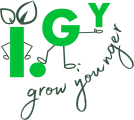
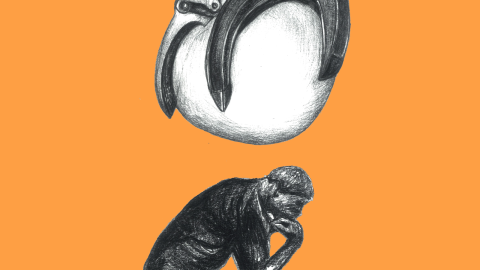
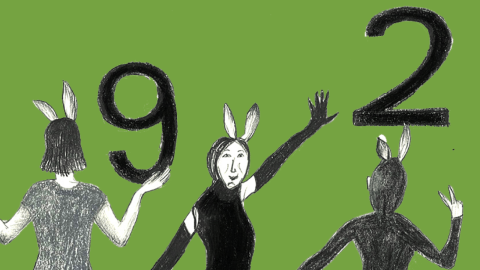
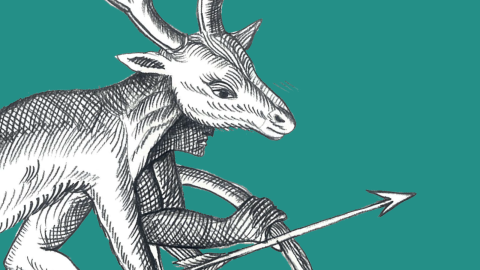
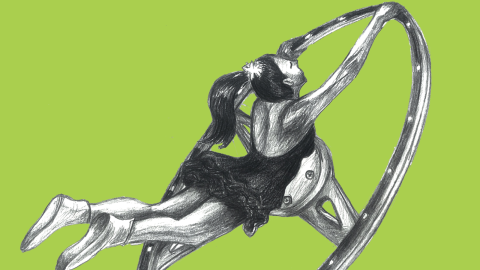
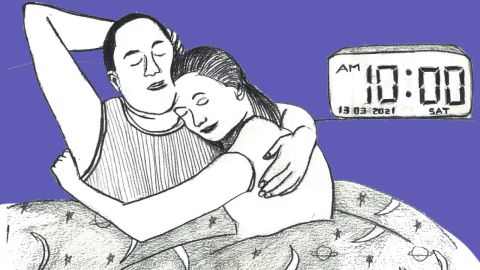
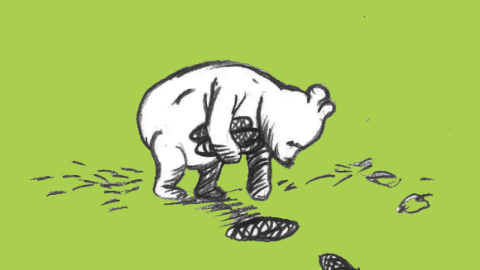
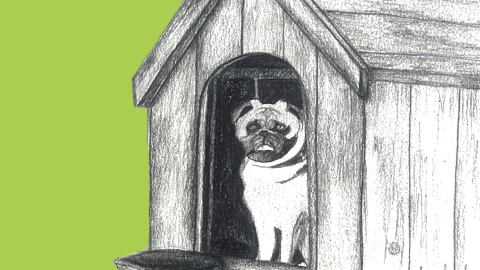
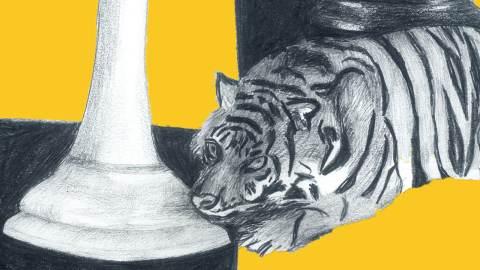





















Hmm, overcoming the “utopia” concept as relic that is blocking innovation could be one of starting points.